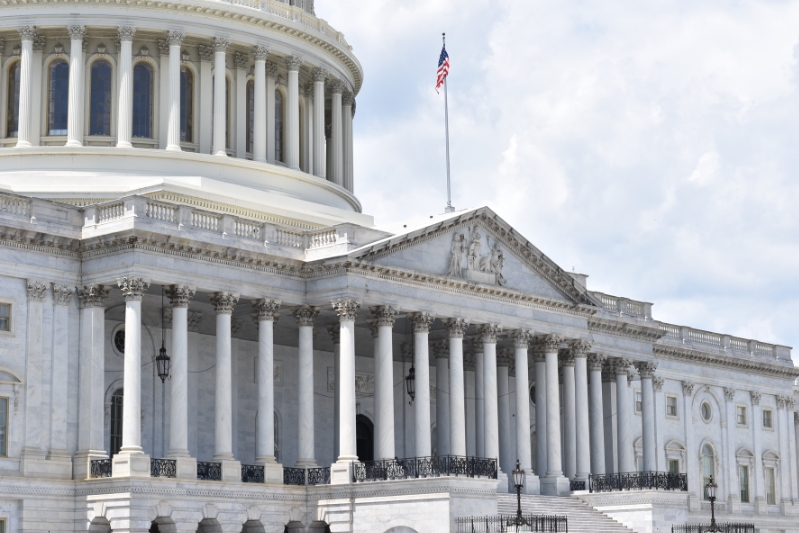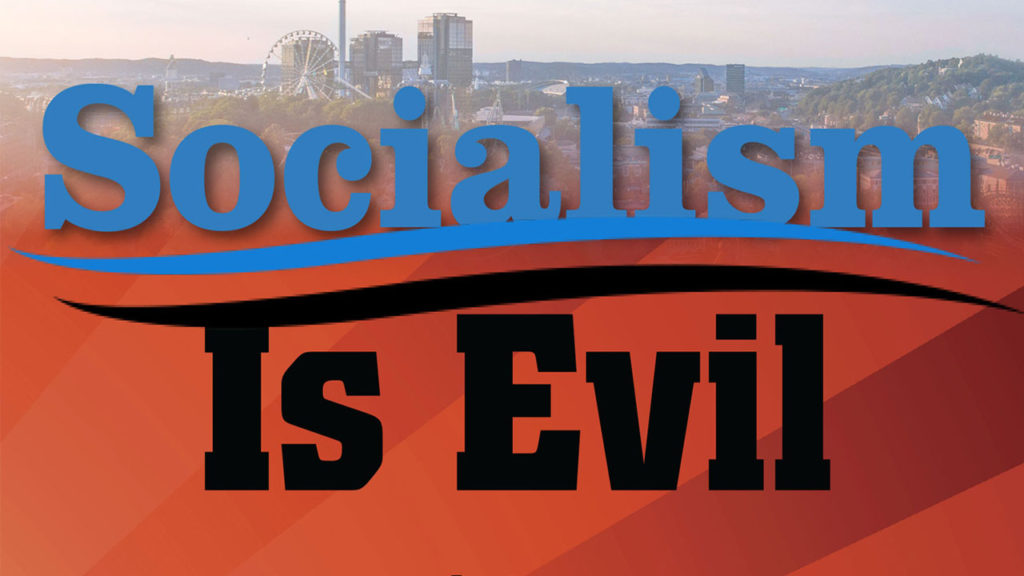Over the past decade, financial institutions have been wielding their power to silence conservatives, Christians, and anyone else who dares to challenge the prevailing leftist orthodoxy.
Banks and credit unions, backed by billions in assets and special government privileges, have freely discriminated against right-leaning individuals and organizations, cutting them off from critical financial services with little to no justification. Now, Republican lawmakers are attempting to put an end to this abuse with the introduction of the Fair Access to Banking Act.
Introduced earlier this month by Senator Kevin Cramer (R-ND), the Fair Access to Banking Act legislation would hold large financial institutions accountable when they refuse services to law-abiding citizens based on their political, religious, or ideological beliefs.
The legislation would also penalize financial institutions that mistreat lawful businesses that would normally be approved for services but are denied because of their involvement in a disfavored industry, such as a gun manufacturer or a fracking business.
The bill, which has already garnered the support of 42 Republican co-sponsors—including Ted Cruz (R-TX), Tim Scott (R-SC), John Kennedy (R-LA), and Marsha Blackburn (R-TN)—would impose stiff penalties on financial institutions engaging in viewpoint discrimination.
Additionally, a similar bill has already been introduced in the House of Representatives, further strengthening the measure’s momentum.
If passed, the Fair Access to Banking Act would apply to banks, credit unions, and financial institutions with more than $10 billion in assets. Any institution found guilty of politically motivated financial discrimination could face exclusion from using discount window lending programs, revocation of its insured depository status, or fines reaching $10,000 per violation.
A Troubling Trend
Despite the media’s best efforts to ignore the issue, financial discrimination against conservatives and Christians is escalating. Powerful banks have turned their influence into a political weapon, using account closures and financial blacklisting to punish individuals and groups that don’t align with their priorities.
The examples of this discrimination are numerous and disturbing.
In 2020, Bank of America severed ties with the Timothy Two Project International, a Christian ministry dedicated to training pastors in impoverished communities around the world. The bank claimed the group was involved in a “business type” it preferred not to serve. I guess spreading the Gospel to those in need doesn’t align with Bank of America’s business priorities.
In 2023, Wells Fargo cancelled a line of credit to a Florida gun dealer. In the letter explaining the decision, Wells Fargo said “the reason(s) for this action is: Banking guidelines excludes lending to certain types of businesses.”
Other individuals and groups targeted by financial institutions include the National Committee for Religious Freedom, a Christian nonprofit serving orphaned children in Uganda called Indigenous Advanced Ministries, and Moms for Liberty, a national organization of conservative parents.
Even President Trump and his family have been victimized by debanking policies. In early 2021, following the January 6 riots at the U.S. Capitol, Deutsche Bank announced that it had ended its two-decades long relationship with Donald Trump and the Trump Organization. And in her 2024 autobiography “Melania,” Melania Trump said that she and her son Barron had also been denied access to banking services. (The first lady didn’t name the bank in her book.)
These cases are just the tip of the iceberg. In most states, banks are not required to tell their customers the detailed reasons behind a decision to close accounts or deny services. That means untold numbers of people could have been denied access to financial services over the past decade due to their social or political views.
Will Republicans Deliver?
The Fair Access to Banking Act presents a critical opportunity to put an end to this financial tyranny. But as with many conservative legislative efforts, the bill’s passage is far from guaranteed. While it has strong backing from the House and Senate banking committees, Republicans hold only narrow majorities in both houses, making every vote crucial.
Moderate Republicans such as Lisa Murkowski (R-AK) and Susan Collins (R-ME) have yet to publicly support the legislation, raising concerns that internal division could derail the effort. Meanwhile, congressional Democrats have largely been silent about the bill, although they opposed similar legislative efforts in the past.
However, there is reason for optimism. Former President Donald Trump has been a vocal supporter of fair access policies, and his administration previously introduced regulations to prevent politically motivated financial discrimination. Although those regulations were swiftly repealed by the Biden administration, Trump’s potential return to the White House could provide the bill with the final push it needs to become law.
Additionally, the support for the bill is high among members in the House and Senate committees responsible for overseeing financial services, suggesting the legislation should eventually receive a full vote.
At its core, this debate is about more than just financial services. It’s about fundamental American freedoms. Banks should not have the power to police speech, religion, or political activism. They operate under legal protections and federal privileges that allow them to dominate the financial marketplace, and with those privileges comes a responsibility to serve all law-abiding citizens, regardless of political or religious beliefs.
Congress now faces a crucial test. The Fair Access to Banking Act is not just another bill—it’s a measure of whether our elected officials have the courage to stand up for fairness and equal treatment in the financial sector. The weaponization of banking must end. The time for action is now.
Editor’s Note: This article was previously published by Townhall.com. Reposted here with permission.
Justin Haskins is a New York Times bestselling author, senior fellow at The Heartland Institute, and the president of the Henry Dearborn Liberty Network.
Justin Haskins is a New York Times bestselling author and political commentator, the president and founder of The Henry Dearborn Liberty Network, and the founder of the Emerging Issues Center at The Heartland Institute, a national free-market think tank. (His work here does not necessarily reflect the views of The Heartland Institute.) Follow him on Twitter @JustinTHaskins.




